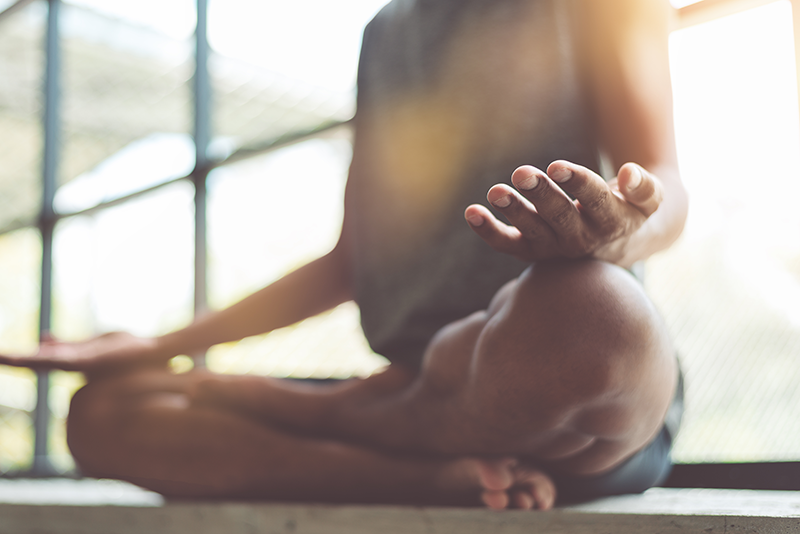Two monks were traveling together when they came to a river with a strong current. They spotted a young woman waiting, unable to cross alone. Despite the sacred vow they’d taken not to touch women, the older monk picked her up, crossed the river successfully, and set her down on the other side. The younger monk was aghast but kept it to himself. An hour passed, then two hours, then three, until he could no longer take it. “Why did you carry that woman when we took a vow as monks not to touch women?” he asked, agitated.
The older monk replied, “I set her down hours ago by the side of the river. Why are you still carrying her?”1
We have a natural tendency to dwell on the past. This interferes with living in the present. I’m not just referring to the deep past, when we think back regretfully on “the one that got away” or the job opportunity we passed up because we were afraid to relocate. I’m talking about ruminating on events from the recent past. Most of us do this obsessively. We do this with near-future events, too. In fact, an untrained mind toggles pretty evenly between the discussion that could have gone better earlier that morning at work and the doctor’s appointment the following day, not noticing the roses along the way (never mind stopping to smell them). We are still carrying the girl long after we’ve set her down safely on the other side of the riverbank. (I use the pronoun “we” in a general way here because “you” are putting a stop to all this nonsense.)
There’s a reason I set everyone up to master their physical mountain before tackling their mental mountain. Though starting a regular workout routine combined with healthy eating habits may seem daunting, it’s easier than embarking on a disciplined meditative practice. It is also imperative because a body that is unhealthy or out of whack is a big distraction. Meditation needs a healthy body as a foundation, which is why most people fail at meditation. Another reason for failure is that, unlike physical training, there is no external evidence that it is working. Those who exercise regularly and maintain healthy diets look better than those who don’t. But meditators don’t suddenly lose weight and gain muscle mass. If you lined up headshots of me before I ever started meditating, my head is not going to be a few pounds heavier in a year. There is no obvious tell to indicate: Yeah, the guy on right is a meditator. Just look at the size of that brain! There’s no physical proof—none that the naked eye can see. But daily meditative practice transforms you and makes you much physically healthier. It just happens at the cellular and energetic levels.
How does it work?
I’m glad you asked! The brain possesses the capacity for neuroplasticity. This means it’s capable of reorganizing and creating new pathways and connections. Those add up to more intelligence. Axons can grow new nerve endings, and neural pathways can be created. This happens through the simple act of engaging them. Neurons can be stimulated in one part of the brain to pick up the slack for another, in the case of injury. Or they can be sparked to grow by learning new things, such as a language, a musical instrument, the tango, by reading this blog, or from meeting someone new. We also stimulate our neural pathways by exercising them through meditative practices in the same way we increase our upper body strength with pushups.2
Gray matter is positively affected by meditation, increasing the volume, density, and gyrification in the areas of the brain associated with self-awareness, emotion regulation, cognition, and even aging.3 Aging—wow, right? This growth amps up our self-control, willpower, motivation, and the ability to focus. Meditation fires up the attentional parts of our brain and turns the dial down on the default mode network, which is, again, responsible for self-referential processing and mind-wandering (mainly negative chatter about past and future events we can’t control).
What I’m saying is this simple truth: meditation makes our brains more effective and efficient, and it makes our minds clear and more expansive. This wholeness allows us to move beyond the limiting ego stories that trap us in limited thinking. We win the battle over our monkey mind and fear-based conditioning. The result is total freedom from fear, limitation, and regret. That sounds nice right? This joyful integration of the mind is not reserved for monks or other enlightened beings. It is your birthright, and I consider it imperative to thriving as a human.
Understanding what makes you unique and what motivates you is essential to daily meditative practice and to mastering your five mountains. Knowing your why will assist in diffusing all the repetitive, ruminative, and negative thoughts and steer your focus back to the now.
The practice of meditation comes out of your daily box breathing practice. So, you have already started it. Your only job, and this is critical, is to KEEP DOING IT!


